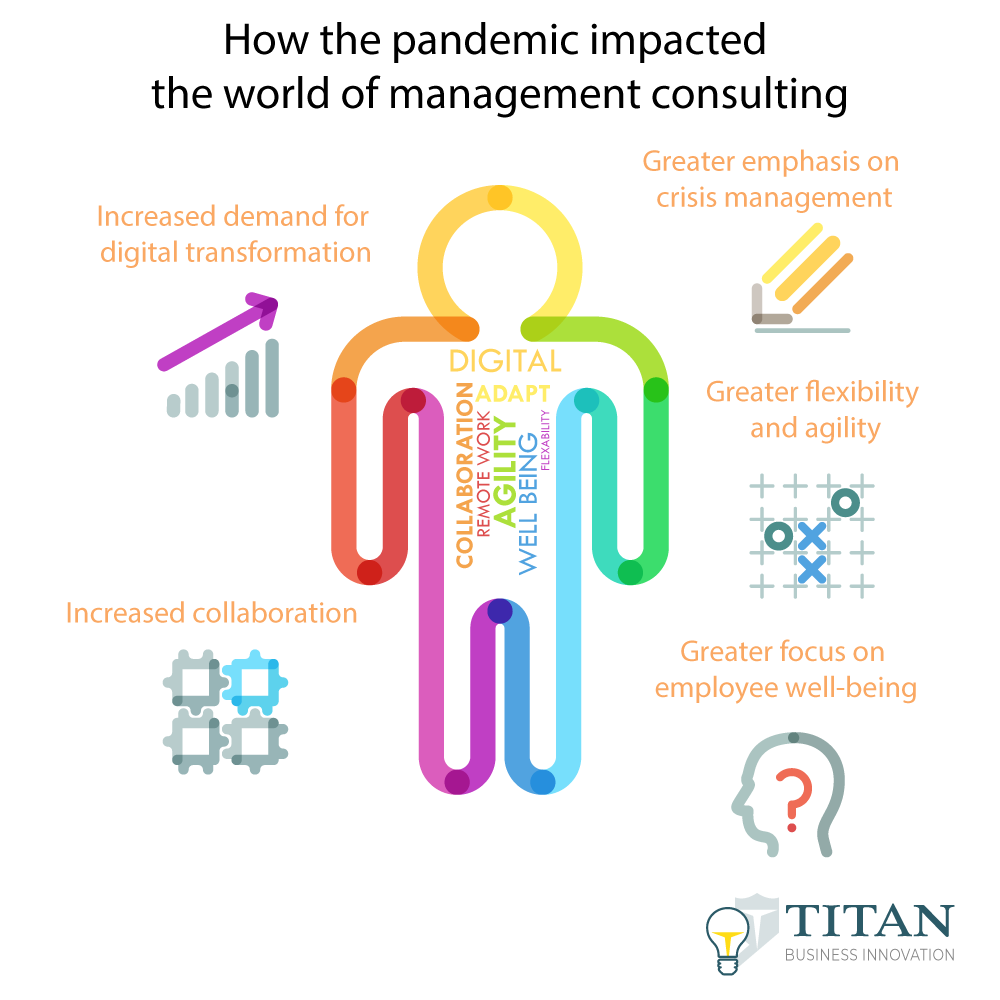Despite initial expectations that the pandemic would reduce demand for management consulting services, the opposite occurred, with a 4.1% growth in the global consulting market in 2020.
Initially, we expected management consultant demand to suffer as companies reduced costs, but demand grew. According to a report by Source Global Research, the global consulting market grew by 4.1% in 2020, despite the pandemic.
The demand for digital transformation increased as companies had to adapt to remote work quickly. According to a survey by Deloitte, 70% of executives said that the pandemic has made them more open to remote work. In addition, a study by KPMG found that 87% of executives believe the pandemic has accelerated their digital transformation efforts. Across all industries, consultants were in high demand to support companies in improving their business processes. In the past two years, Ernst & Young has added 1,000 people to their consulting teams.

Below is a list of the reasons why management consultants demand increased during the pandemic:
Increased demand for digital transformation
The pandemic has accelerated the need for businesses to digitize their operations and adapt to remote work. As a result, there has been an increased demand for management consulting services related to digital transformation, such as technology implementation, cybersecurity, and cloud services.
Greater emphasis on crisis management
The pandemic has created numerous business challenges, including supply chain disruptions, financial instability, and workforce management issues. Management consulting firms have been able to assist clients in navigating these challenges and developing crisis management strategies. According to a survey by McKinsey & Company, 91% of executives said they expect their organizations to be fundamentally transformed by the pandemic.
Greater flexibility and agility
The pandemic has forced many businesses to become more flexible and agile. As a result, management consulting firms have been able to help clients develop strategies to become more adaptable to changing market conditions and customer needs.

Increased collaboration
With the rise of remote work, management consulting firms have had to find new ways to collaborate with clients. The lack of face-to-face client meetings led to adopting of new digital tools and platforms that allow for more seamless collaboration and communication.
Greater focus on employee well-being
The pandemic has brought greater attention to employee well-being and mental health. As a result, management consulting firms have been able to assist clients in developing strategies to support their employees’ well-being, such as flexible work arrangements and mental health resources. In addition, digital transformation can increase the efficiency of businesses and improve staff health.
The pandemic increased demand for overseas methodologies in Japan. The disruption was a rare chance to change ways of doing business. As a result, management consultants with experience in overseas companies and a high level of Japanese communication skills were in high demand. Bilingual talent is hard to find in Japan, and management consultants provided quick access to the knowledge many Japanese companies’ required.

